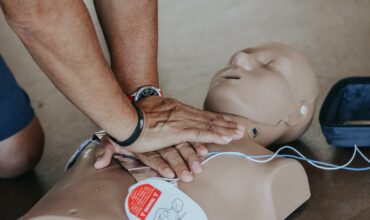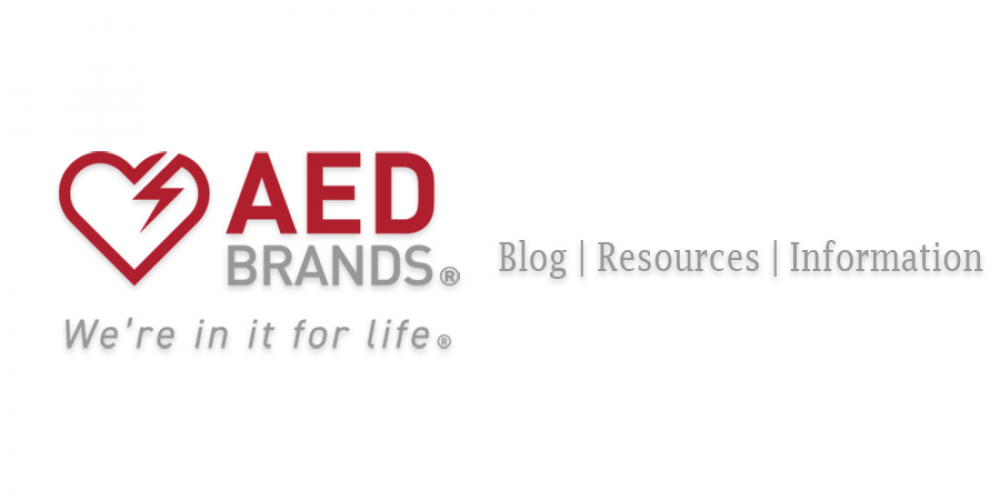- Your cart is empty
- Continue Shopping


CPR (cardiopulmonary resuscitation) is a lifesaving technique that is used to restore blood flow and breathing to a person who has suffered a cardiac arrest. A cardiac arrest occurs when the heart stops pumping blood effectively, often as a result of a heart attack or other serious medical condition. CPR can help keep the person alive until they can receive medical treatment.
An AED (automated external defibrillator) is a portable device that is used to treat cardiac arrest by delivering an electric shock to the heart. The shock can help restore a normal heart rhythm and improve the chances of survival.
CPR and AED certification refers to training in how to perform CPR and use an AED. These courses typically include both classroom instruction and hands-on training, and they are often offered at various levels to cater to different audiences, such as laypeople, healthcare professionals, and first responders.
It is important to note that CPR and AED certification is not a replacement for medical training, and it is not a guarantee that a person will be able to successfully perform CPR or use an AED in an emergency situation. However, having CPR and AED certification can help a person feel more confident and prepared to respond to a cardiac arrest, and it can also increase the chances of survival for the person experiencing the cardiac arrest.
Our CPR/AED First Aid course is designed to provide students with the knowledge and skills they need to respond effectively to a range of emergencies. Led by experienced professionals, the course covers a range of topics, including adult, child, and infant CPR and choking care, AED use and safety precautions, scene assessment, and personal protective equipment. The course follows the 2015 guidelines and is OSHA-compliant, ensuring that students receive the most current and comprehensive training.
With a class size of up to 12 students and a student-to-instructor ratio of 1:12, our CPR/AED First Aid course provides a hands-on learning experience that allows students to practice the skills they learn in a supportive and interactive environment. The class lasts for 2 ½ to 3 hours and includes in-person skills testing to ensure that students are fully prepared to respond to an emergency.
In addition to core CPR and AED training, the course also covers a range of other topics, including responding to medical emergencies, patient assessment and movement, injuries and traumatic emergencies, environmental emergencies, legal issues and consent, and first aid kit contents. Child and infant care is also covered, at no additional charge.
With our 2-year certification, students will receive a certification card upon completing the course, ensuring that they have the skills and knowledge needed to respond to emergencies for the next two years. Sign up today and learn how to save a life in an emergency situation.
An online CPR AED certification training course offers a range of benefits, including the ability to learn life-saving techniques from the comfort of your own home. In addition to the obvious benefit of learning how to provide CPR and use an AED, online courses offer other advantages, such as:
Nationally recognized certification: Online courses are often recognized nationally, meaning that your certification will be valid regardless of where you are located.
Instant access to certification: Upon completing an online course, you will typically have immediate access to your certification, allowing you to start using your new skills right away.
Up-to-date training: Online courses are often updated to reflect the latest guidelines and standards from organizations like the American Heart Association, ensuring that you receive the most current and comprehensive training possible.
Time-saving convenience: Online courses allow you to learn at your own pace, without the need to travel to a physical location for training. This can be especially beneficial for busy individuals who may not have the time to attend in-person classes.
Professional instruction: Online courses are often taught by certified and experienced instructors, ensuring that you receive high-quality training from knowledgeable professionals.
Implementation Guide